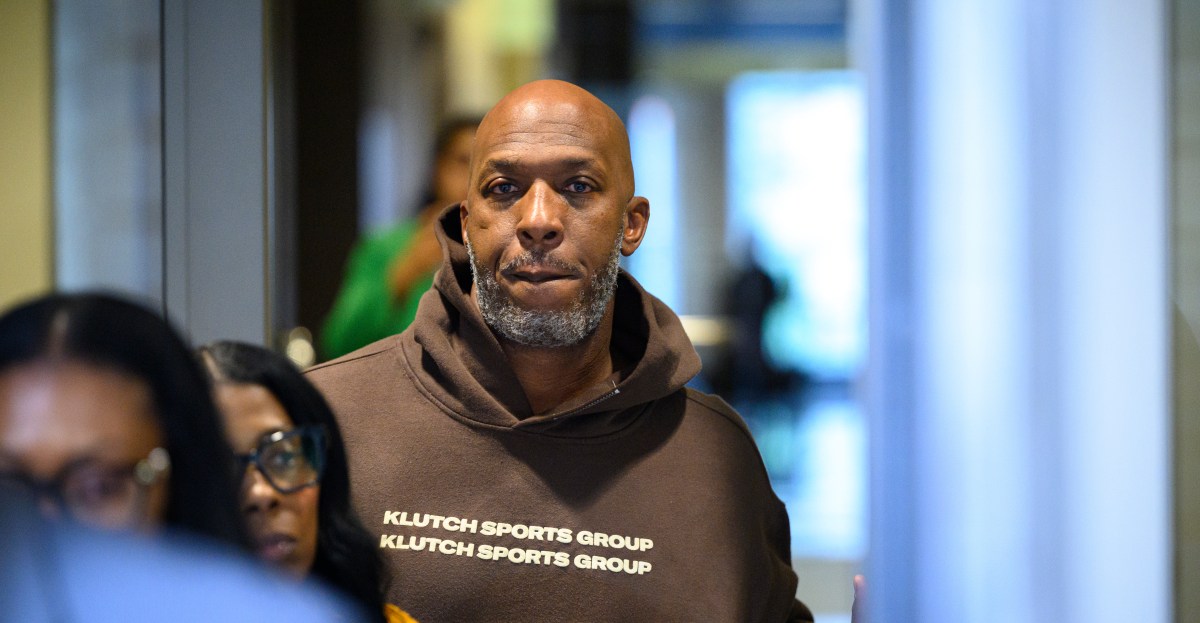
Are Gambling Charges Against Chauncey Billups Overblown?
Few scandals have blossomed so dramatically, or had such an immediate impact, as Portland Trail Blazers Head Coach Chauncey Billups being arrested last week for participating in an illegal gambling ring. Billups was suspended by the NBA within hours. The Trail Blazers had named assistant Tiago Splitter as their new acting head coach before twilight fell. It was a momentous day, completely unexpected with long-tail ramifications as yet to be determined.
Despite the splash, Sally Jenkins of The Atlantic suggested in an article today that the accusations against Billups were a tempest in a teapot [subscription required]. The lengthy piece explored the charges facing Billups, plus fellow NBA figures Terry Rozier and Damon Jones. Jenkins suggested that of all of them, Billups’ case may be the most minor, if not spurious.
Billups stands accused of luring players to an illegal poker game that he knew was rigged, then accepting a cut of the proceeds. Part of the hand-wringing has come from a connection to organized crime families. Jenkins points out that, even if true, this hardly qualifies the suspended coach and his associates as high-level operatives nor Billups as the next figurehead in a Martin Scorsese film.
They are low rollers and a handful of alleged mob-family middlemen with names such as “Lou Ap” and “The Wrestler,” accused of running a rigged poker ring that prosecutors say fleeced card players out of at least $7 million. That hardly ranks as the organized-crime bust of the century. A study by the American Gaming Association estimated that this year, illegal and unregulated gambling wagers will amount to more than $673 billion; of that, sports betting will account for about $84 billion.
It’s not unusual for prosecutors and cops to put high-profile indictments on display in the name of deterrence. But in this case, they came perilously close to a smear, positioning the NBA figures squarely alongside those from La Cosa Nostra: the Gambinos, Luccheses, Bonannos, and Genoveses. Patel also likened the NBA to Wall Street. “Let’s not, you know, mince words,” he said. “This is the insider-trading saga for the NBA.”
But where Patel and the prosecutors promise a lion, out pops a mouse. The contents of the indictments involving the NBA figures are surprisingly paltry: Billups is mentioned only a handful of times; he is alleged to have served as a “face card,” a celebrity player who enticed marks to a gaming table equipped with high-tech devices, such as X-ray card readers, to direct winning hands. The Department of Justice’s detention letter quotes suggestive texts that allegedly were sent between accused organizers and participants, including one mentioning Billups by name: “The one guy on the end acted like he wanted Chauncey to have his money! He was star struck!” Another appears to show a person claiming that participants in the game knew “all the signals.”
Jenkins cites attorneys for Billups and Rozier denying the government’s claims. Rozier’s defense lawyer is reminding all involved that prosecutors said Rozier was a “subject” in these investigations rather than a “suspect” and that the NBA had conducted an investigation which cleared his client.
Jenkins claims that, if anything, the accusation of Billups providing strategy/rest information about players for a single game in March, 2023 might carry more weight in the eyes of the league than the poker allegations, as it directly involves the sport and his position in it. The then-coach told associates that key players would be resting since the Blazers were “tanking” a game late in the season. That information was not available to the public when Billups disclosed it. Betting action followed. But Jenkins claims that even this was hardly doctoral-level discernment:
You can read that scenario as a tank and a fix. But the indictment does not allege that Billups played any role in the bets or profited from them. Everyone in the basketball world knew that the Trail Blazers were out of the playoff hunt and that, with just 10 games remaining, they were likely to shut down their starters—not only for the sake of those players’ long-term health but also to foster younger players, and perhaps improve the team’s chances of drafting the phenom Victor Wembanyama.
Whether or not the characterizations in this article are definitive, the wave of reaction—and outrage—surrounding this incident has threatened to obscure the actual offenses. Perhaps a “down to earth” reminder about the charges (plus the government’s tendency to overstate their seriousness and affirm the guilt of the accused) could be helpful as the indictments proceed.
First Appeared on
Source link






